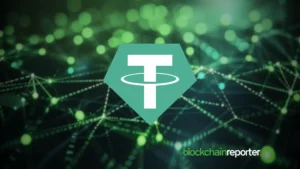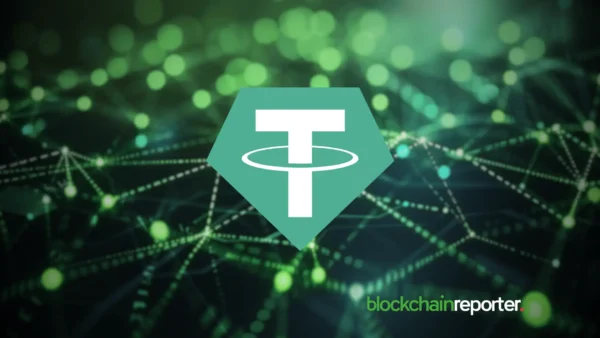
- 1. Ripple Partners with Mercado Bitcoin to Launch Ripple Crypto Payments in Brazil
- 2. Polkadot Pushes for Greater Decentralization with New Program
- 3. Trust Wallet Launches Launchpool for Token Staking
- 4. Ripple Expands in the UAE with DFSA Approval
- 5. Visa Launches Tokenized Asset Platform (VTAP) for Banks
- 6. Conclusion
This week, several major blockchain and crypto developments have shaped the financial landscape. Ripple expanded its services in Brazil and the UAE. On the other hand, Polkadot advanced its decentralization efforts, Trust Wallet introduced a new token staking platform. Moreover, Visa launched a solution for tokenizing assets. These moves highlight growth in digital finance. In addition, these steps emphasize the increasing integration of blockchain technology in both global markets and traditional financial systems.
Ripple Partners with Mercado Bitcoin to Launch Ripple Crypto Payments in Brazil
Mercado Bitcoin is the largest cryptocurrency exchange in Latin America where Ripple has entered into an agreement to establish Ripple Payments. This new service will seek to improve the efficiency of cross border payment especially between Brazil and Portugal in terms of Treasury operations. This managed solution that Mercado Bitcoin is the first customer in Brazil to use, provides faster and cheaper international transactions using Ripple’s blockchain. The system makes it possible to complete payment processing and clearances within the shortest time possible.
The partnership also sees a non-resident account feature, whereby customers can make payments within the Brazilian Reais. The intention behind this change is to enhance the value of the customer experience and the process of making international payments.
Polkadot Pushes for Greater Decentralization with New Program
Polkadot is set to make a major advance towards increasing decentralization with the introduction of its Decentralized Nodes Program. This is being led by the Web3 Foundation to improve the network, with various representatives from projects being backed. The current program priority areas are security, sustainability, and trust-free operation, which will contribute to the expansion of validators’ responsibilities and decentralization of the ecosystem.
The program is intended to improve the security and decentralization of the Polkadot network. It selects validators that will have an important role to play in how it will function. Validators who meet the requirements can apply until October 31, 2024, and each of them can apply for two nodes. The validators who will successfully pass through the program will be the part of a four months unit effective from November 2024.
Trust Wallet Launches Launchpool for Token Staking
Trust Wallet has introduced Trust Wallet Launchpool that is designed to offer a new staking experience to the 140 million users of the platform. The development that relates to the possibility of staking tokens and receiving rewards in wallets. This initiative offers users priority access to new projects. It also reflects Trust Wallet’s commitment to decentralization, security, and user empowerment.
Launchpool allows Trust Wallet users to stake tokens from popular blockchain projects, earning rewards in return. This move strengthens the platform’s focus on self-custody and decentralized finance. It gives users full control over their assets while participating in staking opportunities.
Ripple Expands in the UAE with DFSA Approval
Ripple has made a major leap in its plans to grow its digital asset business in the United Arab Emirates after receiving an In-Principle okay from the Dubai Financial Services Authority (DFSA). This approval helps Ripple to expand its digital ecosystem in the DIFC and strengthen its position in the rapidly developing financial center of the Middle East. The news was disclosed to the members of the crypto community via Ripple’s social media platforms.
Recently, Ripple has received the DFSA approval to open Ripple Payments Direct (RPD), which is a significant achievement to open in the UAE market. The service is meant to improve international payments by providing fast and cheap solutions and compliance with laws of the countries. Liquidity management and asset custody services are some of the Ripple infrastructure that helps in the efficiency of the transaction.
Visa Launches Tokenized Asset Platform (VTAP) for Banks
VTAP is Visa Tokenized Asset Platform that will allow banks to issue tokens supported by cryptocurrencies on the Ethereum. It intends to make asset tokenization operational for financing institutions and at the same time, remain compliant with the regulations. VTAP is aimed at providing the opportunity for fast and efficient transactions with digital assets.
The tokenization market is expected to expand by more than $16 trillion, and Visa’s participation should boost institutional uptake of crypto assets. VTAP also enhances cross border transactions by enabling banks to issue Real World Assets (RWAs) and do away with transaction costs. With smart contracts, the efficiency of the platform is increased. Therefore, it can be considered as the useful instrument for the central banks experimenting with the digital currency.
Conclusion
Ultimately, the events of the current week prove that the sector of blockchain and cryptocurrencies is rapidly evolving to change the financial industry. As Ripple continues to go global, Polkadot emphasizes decentralization, and Trust Wallet and Visa offer new services, the industry is gradually developing. These advancements highlight the growing adoption of blockchain technology across various sectors, ultimately fostering more efficient, secure, and accessible financial systems for users worldwide.








